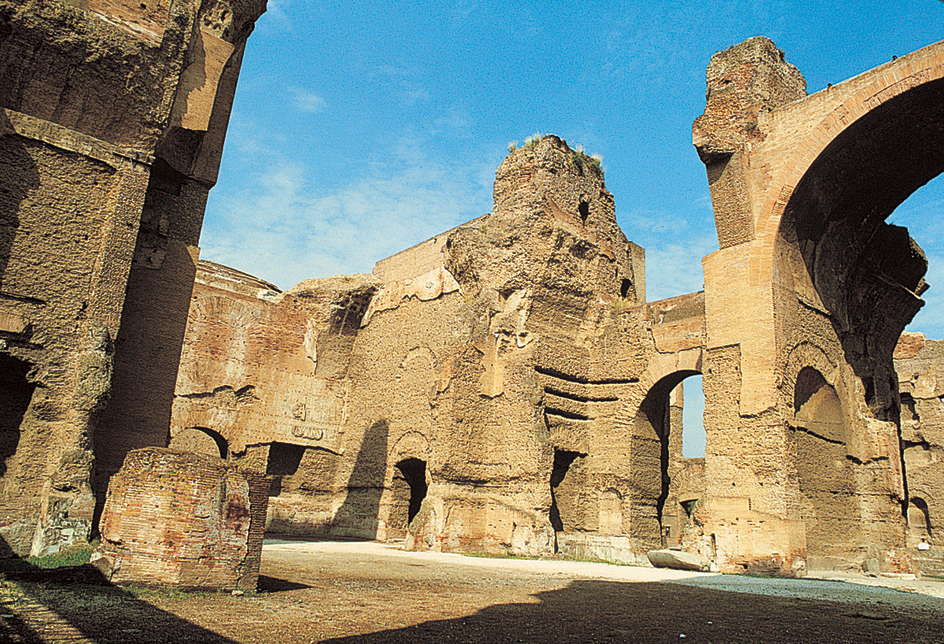Caracalla << kuh RAK uh luh >> (A.D. 188-217), was a Roman emperor who reigned from A.D. 211 to 217. His name comes from a kind of hooded cloak that he liked to wear. Caracalla had an unstable character and limited ability as a ruler. He also had a hostile relationship with the Roman Senate. In 212, Caracalla issued the Constitutio Antoniniana, which extended Roman citizenship to most free inhabitants of the Roman Empire. Caracalla also is known for the large public baths built in Rome during his reign and named after him.

Caracalla was born on April 4, 188, in Lugdunum, Gaul (now Lyon, France). Historians think his original name might have been Lucius Septimius Bassianus. Caracalla’s father, Septimius Severus, was a Roman senator. In 193, Septimius established himself as emperor during a time of political upheaval. Septimius made Caracalla co-ruler with him in 198. Later, he also made his younger son, Geta, a co-ruler. Septimius died in 211 while on a military campaign in Britain. He had named Caracalla and Geta as his joint successors. But the brothers hated each other, and Caracalla soon had Geta and his associates murdered.
On becoming sole Roman emperor, Caracalla gave the military a significant raise in pay. However, the favor that he showed the army led to financial difficulties for Rome. One of Caracalla’s solutions was to introduce a new silver coin with an artificially high value. Many historians believe he may have extended Roman citizenship to more people mainly as a way of increasing public funds. Only citizens had to pay certain taxes.
Caracalla longed to rival the military achievements of the famous Macedonian ruler Alexander the Great . In 213 and 214, Caracalla led military campaigns in the Rhine and Danube regions of what is now Germany. He then traveled to Alexandria, Egypt, where Alexander was buried. For reasons unknown to historians, Caracalla became angry with Alexandria’s people, and his soldiers slaughtered thousands of them. A quarrel with the Parthians, who ruled a large empire in southwest Asia, led Caracalla to invade the region in 216. The invasion overextended the army. Caracalla’s staff lost confidence in him and had him assassinated on April 8, 217.
